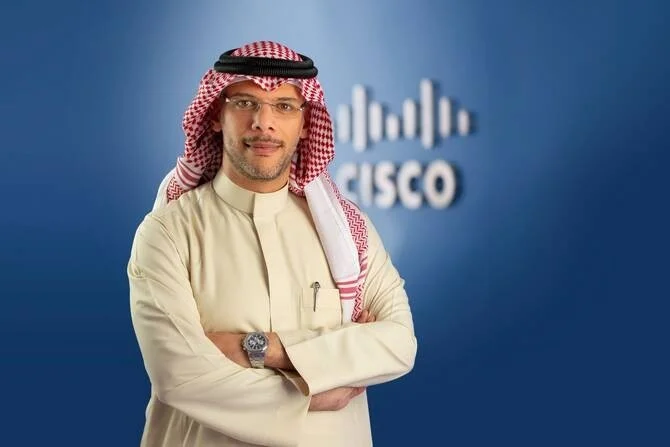Saudi Arabia’s ICT sector has surpassed $10 billion in spending, reinforcing the Kingdom’s position as the largest technology market in the MENA region, according to Salman Faqeeh, Managing Director of Cisco Saudi Arabia. Speaking on the country’s digital transformation, Faqeeh highlighted the Kingdom’s rapid strides in cybersecurity, AI innovation, and smart city development.
Saudi Arabia’s Expanding Tech Landscape
Faqeeh noted that Saudi Arabia’s cybersecurity market is growing at a CAGR of 18.33% through 2029, while projects such as NEOM, with an investment of $500 billion, are setting global benchmarks for smart, connected, and sustainable cities. “Saudi Arabia is well on its way to becoming a global leader in innovation and technology adoption,” he said.
At the heart of this transformation lies cybersecurity. “Amidst mounting complexity and expanding attack surfaces, cybersecurity is the bedrock of a prosperous digital economy,” Faqeeh emphasized.
A New Security Paradigm: Where AI Meets the Network
Outlining Cisco’s new direction, Faqeeh revealed the company’s AI-driven defense strategy designed to protect every layer of the digital ecosystem.
- Cisco AI Defense provides end-to-end AI security, offering visibility and control across networks.
- Cisco Hypershield protects AI-scale data centers and clouds, forming a key defense layer for the AI era.
He added that Cisco Security Cloud and Extended Detection and Response (XDR) solutions are helping Saudi enterprises enhance resilience. One key partnership — with stc — has boosted cyber coverage by 95% and cut incident response times from eight hours to one hour.
AI’s Transformative Power Across Sectors
Faqeeh also spoke about AI’s transformative role in healthcare, education, and smart cities. From predictive patient care to AI-enhanced learning tools, he said AI will augment — not replace — human expertise. “The best defense won’t be artificial or human — it will be a collaboration between the two,” he stated.
Building Local AI and Cyber Talent
According to Cisco’s 2025 Cybersecurity Readiness Index, only 1% of Saudi organizations have reached a mature level of readiness to counter modern cyber threats. Faqeeh urged enterprises to invest in AI-driven detection, address talent gaps, and manage risks from shadow AI.
Cisco is tackling this through large-scale talent initiatives. Since its launch with King Abdulaziz University, the Cisco Networking Academy has trained over 479,000 learners — 36% of them women — and aims to reach 500,000 trainees within five years.
Additionally, Cisco partnered with King Abdullah University of Science and Technology (KAUST) to launch the Cisco AI Institute, which will train future AI leaders and accelerate innovation, while collaborations with King Abdulaziz City for Science and Technology (KACST) are expanding Cisco Certified Internetwork Expert (CCIE) certifications.
Driving the Kingdom’s Digital Future
Faqeeh reaffirmed Cisco’s commitment to supporting Saudi Vision 2030 through AI-ready infrastructure, local innovation, and smart urban technologies. “We are building a secure, intelligent ecosystem — one that protects, connects, and empowers organizations across every sector of the Kingdom,” he concluded.















